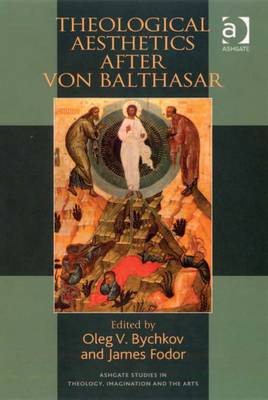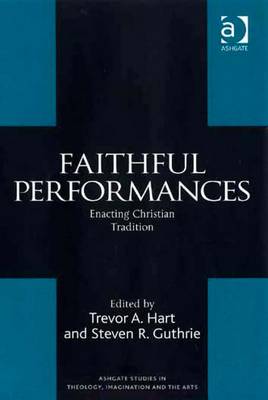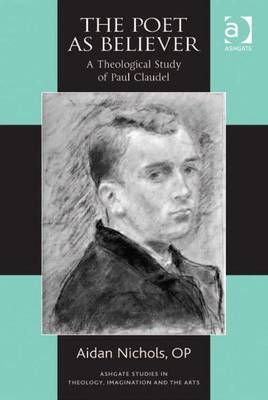Ashgate Studies in Theology, Imagination and the Arts
4 total works
Living Theodrama is a fresh, creative introduction to theological ethics. Offering an imaginative approach through dialogue with theatrical theory and practice, Vander Lugt demonstrates a new way to integrate actor-oriented and action-oriented approaches to Christian ethics within a comprehensive theodramatic model. This model affirms that life is a drama performed in the company of God and others, providing rich metaphors for relating theology to everyday formation and performance in this drama. Different chapters explore the role of the triune God, Scripture, tradition, the church, mission, and context in the process of formation and performance, thus dealing separately with major themes in theological ethics while incorporating them within an overarching model. This book contains not only a fruitful exchange between theological ethics and theatre, but it also presents a promising method for interdisciplinary dialogue between theology and the arts that will be valuable for students and practitioners across many different fields.
Theological Aesthetics after von Balthasar
This collection of essays by distinguished authors explores the present-day field of theological aesthetics: from von Balthasar's contribution and parallel developments to correctives and alternatives to his approach. A tribute to von Balthasar's own project expands into a dialogue with ancient and medieval traditions in search of revelatory aesthetics. The contributors outline challenges to his approach (including Protestant perspectives) and introduce new ways of viewing the field of theological aesthetics, which ultimately opens up to the idea of concrete cultural contexts and practical human needs determining the use of the arts and aesthetic sensibilities in theology.
Faithful Performances
The metaphor of performance has been applied fruitfully by anthropologists and other social theorists to different aspects of human social existence, and furnishes a potentially helpful model in terms of which to think theologically about Christian life.
After an introductory editorial chapter reflecting on the nature of artistic performance and its relationship to the notions of tradition and identity, Part One of this book attends specifically to the phenomenon of dramatic performance and possible theological applications of it. Part Two considers various aspects of the performance of Christian identity, looking at worship, the interpretation of the Bible, Christian response to elements in the contemporary media, the shape of Christian moral life, and ending with a theological reflection on the shape of personal identity, correlating it with the theatrical metaphors of 'character' and 'performing a part' in a scripted drama. Part Three demonstrates how art forms (including some technically non-performative ones - literature, poetry, painting) may constitute faithful Christian practices in which the tradition is authentically 'performed', producing works which break open its meaning in profound new ways for a constantly shifting context.
This is the first comprehensive study of the theological significance of Paul Claudel, a poet frequently cited by literary-minded theologians in Europe and theologically-minded poets (such as von Balthasar, de Lubac and Eliot). His writing combines cosmology and history, Bible and metaphysics, liturgy and the drama of human personality. His work, which continues to arouse discussion in France, was acclaimed in his lifetime as the 'summa poetica' of a new Dante.
Aidan Nichols' study demonstrates how Claudel's oeuvre, which is not only poetry but theatre and prose including biblical commentaries, constitutes a rich resource for constructive doctrine, liturgical preaching, and theological reflection. As the comparable example of Geoffrey Hill, Professor of Poetry at Oxford suggests, Aidan Nichols illuminates how Claudel's synthesis of many dimensions remains an important way of practising poetry in the Christian tradition today.



